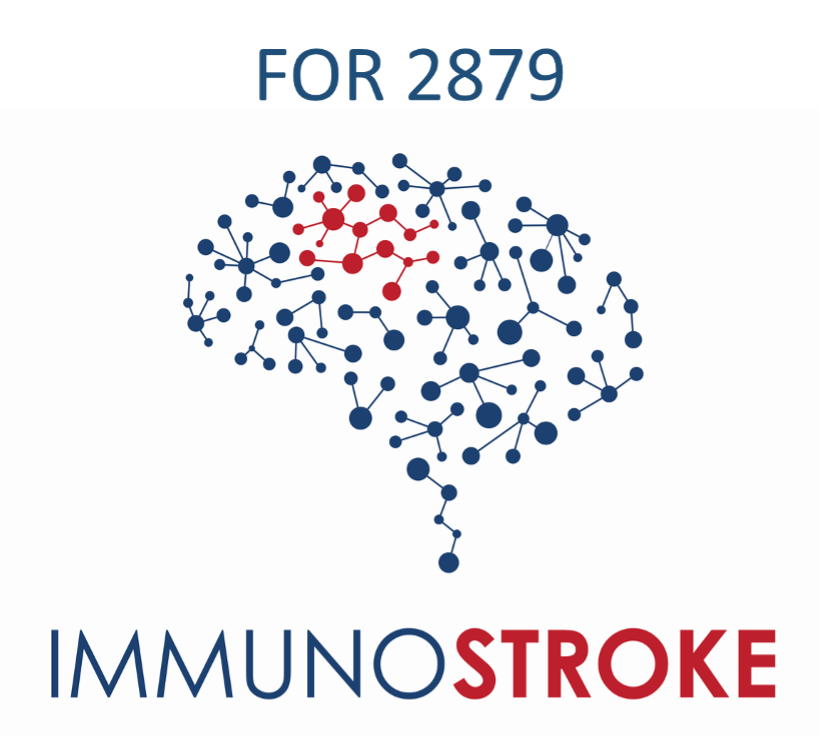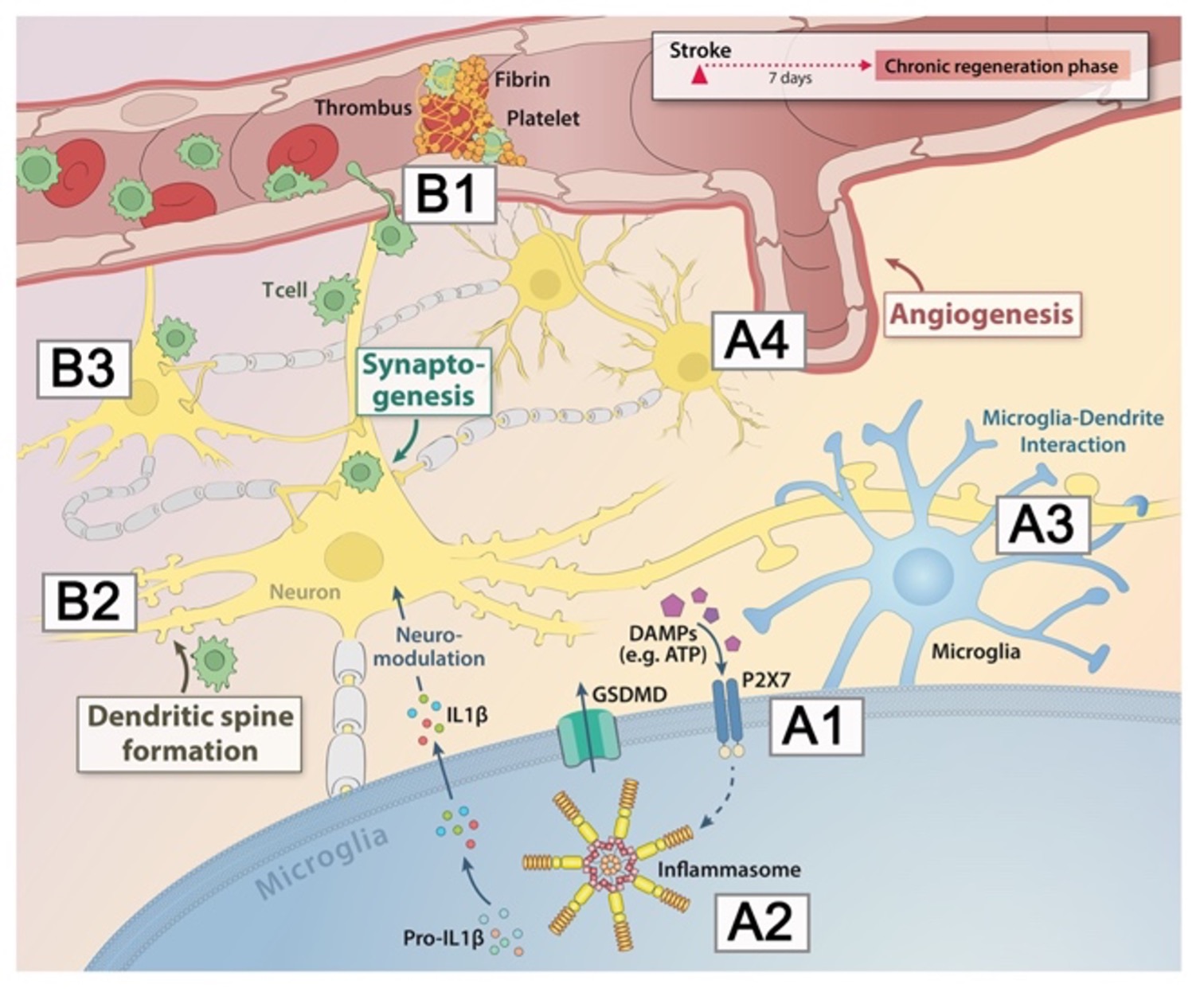Immunostroke

Immunostroke is a DFG funded research group (FOR 2879). Its mission is to understand the role of inflammation in the acute but also in the chronic phase of stroke. In this regard, we will focus on inflammatory responses leading to damage and the function of the immune system for long term recovery of the cerebral tissue. Another important aspect is the translation of experimental findings to stroke patients. Included in our consortium are two projects dealing with the human immune system in stroke.
Immunostroke is a consortium from four different universities in Germany (Hamburg, Essen, München, Münster). The following people and projects are included:

A1: Role of ATP and NAD as DAMP signals in stroke recovery and as therapy targets
In this project, we want to study the effect of so-called “danger signals” or “danger-associated molecular patterns” (DAMPs) as activators of the local immune response in stroke. The goal of this proposal is to develop new treatment strategies for enhancing neuronal repair using nanobodies against danger signal receptors (e.g., P2X7). By targeting danger signals, we hope to modulate the stroke-induced sustained immune response, thereby improving functional recovery and neuronal plasticity. This project is a collaboration of Prof. Dr. Koch-Nolte’s lab in our Immunology department and our lab.
A3: The role of microglia in cortical connectivity during recovery after stroke
The aim of this project is to test the contribution of chronic microglial activation after stroke on post-stroke functional recovery. We will adopt complimentary approaches to deplete microglia either in timed intervals or chronically after stroke and will investigate the effect of microglial depletion on functional recovery. For this, we will combine multiple readouts for neuronal plasticity, behavior and neuronal network function to comprehensively assess post-stroke recovery. This project is a collaboration of the laboratories of Prof. Dr. Misgeld, Prof. Dr. Liesz (both Ludwig Maximillian University, Munich) and our lab.
B3: Decoding immune cell-mediated modifiers on neuronal stroke recovery
The functional outcome after stroke mainly depends on the extent of the neuronal damage. In particular the disruption of neuronal networks on the one hand and the regeneration of functional circuits on the other hand are major determinants. Thus, it is crucial to identify key genes and associated intrinsic neuronal pathways which either drive neuronal resilience and recovery contributing to the restoration of neuronal functionality after stroke or mediate neuronal vulnerability by promoting neuronal network dysfunction. Using the advanced technology of bulk and single nuclear RNA-seq we aim to decode the heterogeneity of the neuronal landscape by identifying selective neuronal pathways that determine neuronal vulnerability, resilience and recovery following stroke and are mainly driven by the anti-inflammatory cytokine IL-10 and the pro-inflammatory cytokine IL-17. Consequently, a detailed understanding of the (immune-mediated) endogenous mechanisms that determine the neuronal fate after ischemic brain damage will pave the way to identify new therapeutic approaches that might enhance neuronal survival and consequently improve functional outcome.